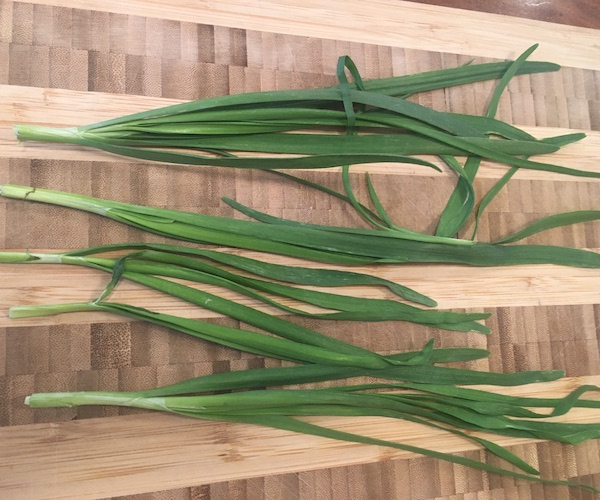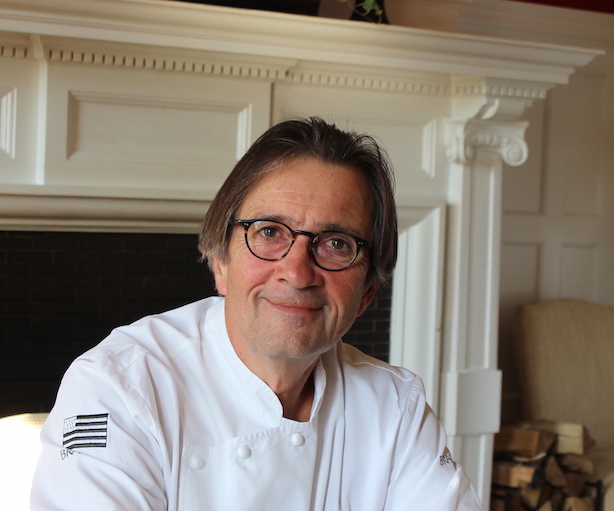by Malcolm Jolley

Ontario's Own manufactures pasta sauces, bottled water and preserves using exclusively local ingredients.
Dan Donovan is looking for things. Things like chopped onions. Chopped onions are an essential ingredient for most store shelf pasta sauces. There is, in fact, a large and reasonably priced supply of chopped onions available to food processors in Ontario, but Donovan can’t use them because they all come from China. The pasta sauces that the company Donovan works for, Ontario’s Own, makes don’t use Chinese onions or Italian tomatoes in their sauces (or chemicals either). In fact, as Ontario’s Own’s Product Developer his job is simply to find Ontario ingredients and to find out if it’s even possible to make things like pasta sauce using locally sourced ingredients on a scale large enough to stock major grocery stores.
I met with Donovan recently in the complex of offices in an old Toronto warehouse building that has become a hot bed of environmental entrepreneurialship. It’s no coincidence that Investeco, the powerhouse green financial firm that has backed some of the region’s best known organic and natural food companies like Organic Meadow and Rowe Farms has offices just downstairs. Smart money is behind Ontario’s Own’s play to satisfy increasing consumer demand for locally produced food, and its corollary distrust of food imports, particularly from China. It’s Donovan’s job to actually figure how to do it.
In many ways Donovan is a natural: he left a successful software career a little over a decade ago to learn how to cook professionally. Soon after he ended up in Jamie Kennedy’s kitchen, and then to the front of the chef’s house as manager, eventually becoming a partner in the JK restaurants. Kennedy’s commitment to local producers is legion, but Donovan has quickly discovered the supply chain for artisan cheese or baby lettuce that leads to a chef’s back door is a lot less complicated than the one that carries a skid of jars to a supermarket in the Loblaw chain. “It’s really about what we are able to do,” he explains, “we try and find products that are possible to produce using only Ontario ingredients.” In fact, because of the difficulty of finding berry juice from Ontario to sweeten natural sodas, for instance, Ontario’s Own plans to launch a sister brand called Canada’s Own – the juice will come from BC.
Still, Donovan and Ontario’s Own have managed to get a handful of prodcuts onto the shelves of select Loblaw, Longo’s and Rowe Farms stores as well as popular Toronto independent grocer, Fiesta Farms. One product that was easy enough to source and develop was carbonated mineral water (Donovan says they have no plans to offer still, since tap water is fine – this is really about the bubbles). Another product that proved more difficult to assemble than Donovan and his colleauges reckoned was their line of tomato sauces, and not just because of the chopped onions. “The Leamington area is one of the tomato growing cpaitals of the world,” Donovan explains, “so you’d think it would be easy find local tomatoes, but they all go to making ketchup.”
Ontario’s Own’s recipes are developed by top chefs like Donovan’s old partner Kennedy. Chemical additives are eschewed, as well as the twin flavour enhancers of most processed foods: sugar and salt. Donovan explained that tomatoes destined for French fry sauce don’t need to be particularly ripe, since they will be cooked right down and sweetened intensively with additives. Still, when Donovan found Thomas Utopia organic tomatoes, his troubles weren’t over. The Thomas family processed their tomatoes into cans for the consumer market. A can of tomatoes is perfect for a family’s spaghetti dinner, but you’d have to open a lot of cans to fulfill a supermarket order of pasta sauce. “Bill Thomas was exceptional and willing to work with us,” says Donovan, with a look of sincere gratitute, “he believes in the project and sees it as a way for the industry to survive.” Donovan and Thomas worked out a way to pack larger amounts of his tomatoes to get to Ontario’s Own GTA located processing plant.
The Thomas family aren’t the only farmers and suppliers willing go the extra mile for Ontario’s Own. The company tries to source from artisanal, sustainable and often organic farmr like Anton John’s Soiled Reputation near Stratford. In John’s case, the farmer agreed to chop up his onions, a huge investment in time and energy for an operation already stretched. “In some ways this is a chance for our industries to survive,” Donovan explains when I ask him how he manages to get small supliers to work with him. Donovan’s inquiries into the food supply over the last year or so, led him to some worrying conclusions about where our food is increasingly coming from. “You can’t get chicken stock that isn’t from China,” he says shrugging his shoulders, “chicken bones are more valuable here for things like livestock feed.” Again, Donovan had to convince Rowe Farms, which has ties to Ontario’s Own through Investeco, to reserve a quantity of their post-processing chicken bones so Ontario’s Own could make stock.
Ontario’s Own products are typically a little more expensive than ones using ingredients sourced from afar. Donovan is unapoligetic about this and says the company stresses quality and accountability over discounts. “If you’re competing on price, it’s just a matter of time…” he says raising his eyebrows and implying we are likely to see more food imports from China and other low cost producing countries. Demand for Ontario’s products is strong, he adds, it’s finding the suppliers and fulfilling the minimum orders that’s tricky: “We are led by opportunity and we’ll try and make as many products as we can.”
Find out more about Ontario’s Own at ontariofoodcompany.com. Malcolm Jolley is the Managing Editor of Good Food Revolution.







Wow, I rarely comment on articles like this but I have a few things I would like to say…
Bottled water? Are you kidding me? With the great focus on local and sustainable, you can be blowing the good that is accomplished by littering the planet with more bottles than we need.
Loblaws? Getting the products on the shelves is great, but will it go far? PC products will dominate and shadow this little ‘brand’. In addition, working with a large chain linked to the Weston’s is purely driven by selfish capitalist motivation.
Local vs. organic – this is a hot topic. I think local is great when it is in conjunction with organic but unless you are producing and using immense quantities, the carbon footprint created by stictly local use on a small scale is greater than utilizing non-local products that are organic which can be just as good or better (plus a greater variety) that what we are capable of locally.
I think the overall push for ‘local, local, local’ is short sighted and typically used to push peoples own irrelevant agenda when you look at the big picture.
The local phenomenon is a trend for most, and you are clearly solidifying that trend. Unfortunately, this trend is just that, a trend, and will wither away if the population realizes that the actual benefits are not there in any way. Perhaps you should focus on something new that has a better impact to society with measurable results.